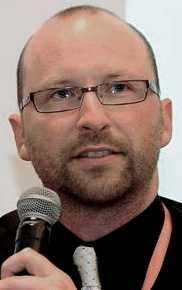

 Outside of China, very few governments would expect a saving in spectrum costs would mostly go to investment. Corporations have other priorities, including advertising and executive salaries. Stockholders come above everything at most companies. Rarely would even 1/3rd of the saving go to capital spending. The U.S. under Trump had a massive tax cut, worth literally billions to Verizon and AT&T. Verizon actually cut investment. AT&T's increase in capex was far lower than the tax saving. more
Outside of China, very few governments would expect a saving in spectrum costs would mostly go to investment. Corporations have other priorities, including advertising and executive salaries. Stockholders come above everything at most companies. Rarely would even 1/3rd of the saving go to capital spending. The U.S. under Trump had a massive tax cut, worth literally billions to Verizon and AT&T. Verizon actually cut investment. AT&T's increase in capex was far lower than the tax saving. more
A paper published by researchers from the Chinese Academy of Sciences, reports a successful demonstration of satellite-based entanglement distribution to receiver stations separated by more than 1200 km -- the results illustrate the possibility of a future global quantum communication network. more
 A new resource dedicated to small and medium-sized digital infrastructure providers highlights the benefits of incorporating sustainability into their operations, offers a consolidated list of best practices and recommendations, and shares additional resources to help make practical changes to save time, energy, and money. more
A new resource dedicated to small and medium-sized digital infrastructure providers highlights the benefits of incorporating sustainability into their operations, offers a consolidated list of best practices and recommendations, and shares additional resources to help make practical changes to save time, energy, and money. more
 Internet service in and around Mogadishu, Somalia suffered a crippling blow recently as the East African Submarine System (EASSy) cable, which provides service to the area, was cut by the anchor of a passing ship. The government of Somalia estimated that the impact of the submarine cable cut was US$10 million per day and detained the MSC Alice, the cargo vessel that reportedly caused the damage. more
Internet service in and around Mogadishu, Somalia suffered a crippling blow recently as the East African Submarine System (EASSy) cable, which provides service to the area, was cut by the anchor of a passing ship. The government of Somalia estimated that the impact of the submarine cable cut was US$10 million per day and detained the MSC Alice, the cargo vessel that reportedly caused the damage. more
Paul Budde writes: "Two relatively new mobile market entrants, Mobyland and Centernet, have launched Poland and Eastern Europe's first commercial LTE network. Vendor Huawei provided the equipment for the network, which operates in the 1800MHz frequency band. Both Mobyland and Centernet previously offered GSM services in the frequency band before refarming the spectrum to offer LTE. The operators aim to expand coverage to 20% of the population by 2011 by deploying 700 base stations." more
 The Caribbean suffered six major storms in 2017, including the record-breaking Category 5 hurricanes Irma and Maria. In the unprecedented destruction, the islands of Dominica and Barbuda lost all communication and telecommunications service, and eight other Caribbean countries were severely disrupted. Each hurricane season wreaks greater devastation than the last, yet decreased telecommunications competition, inadequate regulation, and high national debt burdens in the region yield ever-diminishing infrastructural investment. more
The Caribbean suffered six major storms in 2017, including the record-breaking Category 5 hurricanes Irma and Maria. In the unprecedented destruction, the islands of Dominica and Barbuda lost all communication and telecommunications service, and eight other Caribbean countries were severely disrupted. Each hurricane season wreaks greater devastation than the last, yet decreased telecommunications competition, inadequate regulation, and high national debt burdens in the region yield ever-diminishing infrastructural investment. more
 Broadband networks are stretched thin today due to the large numbers of adults and students working from home. There are many stories on the web that indicate that a lot of employees are not going to be going back to the office when the pandemic is over. Here are two stories about a trend towards more teleworking from the dozens that a Google search uncovered. more
Broadband networks are stretched thin today due to the large numbers of adults and students working from home. There are many stories on the web that indicate that a lot of employees are not going to be going back to the office when the pandemic is over. Here are two stories about a trend towards more teleworking from the dozens that a Google search uncovered. more
 The statistics concerning the number of gigabit fiber customers in the US is eye-opening. OpenVault tracks the percentage of customers provisioned at various broadband speeds. At the end of 2019, the company reported that 2.81% of all households in the US were subscribed to gigabit service. By the end of the first quarter of 2020, just after the onset of the pandemic, the percentage of gigabit subscriptions had climbed to 3.75% of total broadband subscribers. more
The statistics concerning the number of gigabit fiber customers in the US is eye-opening. OpenVault tracks the percentage of customers provisioned at various broadband speeds. At the end of 2019, the company reported that 2.81% of all households in the US were subscribed to gigabit service. By the end of the first quarter of 2020, just after the onset of the pandemic, the percentage of gigabit subscriptions had climbed to 3.75% of total broadband subscribers. more
 Before anyone claims victory for the consumer in AT&T's abandonment of its "swinging for the fence" gambit to buy T-Mobile's market share and spectrum, consider what did not make many headlines this week. Both AT&T and Verizon substantially shored up their spectrum stocks with major deals with Qualcomm and several cable companies respectively. Solid hits for both carriers: not homeruns, but very strategic singles and doubles. more
Before anyone claims victory for the consumer in AT&T's abandonment of its "swinging for the fence" gambit to buy T-Mobile's market share and spectrum, consider what did not make many headlines this week. Both AT&T and Verizon substantially shored up their spectrum stocks with major deals with Qualcomm and several cable companies respectively. Solid hits for both carriers: not homeruns, but very strategic singles and doubles. more
 In the past five years, as one of the country's 'pillar industry', China's telecom service industry has grown at a faster rate than the country's GDP. Revenue from basic telecom service contributes approximately 2.1% of the country's GDP, while value added telecom services contribute a further 3.2% to total GDP. more
In the past five years, as one of the country's 'pillar industry', China's telecom service industry has grown at a faster rate than the country's GDP. Revenue from basic telecom service contributes approximately 2.1% of the country's GDP, while value added telecom services contribute a further 3.2% to total GDP. more
Stéphane Bruno writes: "In the first few hours that followed the earthquake, mobile service was completely disrupted. It was almost impossible to place a call, due to the combination of the damages on the cellular networks and the spike in phone calls. However, on some networks, SMS service was still available. People stuck under rubbles started texting to their friends and family (in Haiti and abroad) to tell them they were still alive and needed help. Those friends and family, not knowing what to do, started posting these SOS messages on their social networks, mainly on Facebook." more
 To date, the FCC has posted 27,063 comments it has received from the Citizens of the United States about its Network Neutrality NOI, aka Broadband Industry Practices WC Docket No. 07-52 [.doc, .pdf]. The first hundred are here, with links to the rest. more
To date, the FCC has posted 27,063 comments it has received from the Citizens of the United States about its Network Neutrality NOI, aka Broadband Industry Practices WC Docket No. 07-52 [.doc, .pdf]. The first hundred are here, with links to the rest. more
 There is a lot of public sentiment against placing small cell sites on residential streets. There is a particular fear of broadcasting higher millimeter wave frequencies near to homes since these frequencies have never been in widespread use before. In the public's mind, higher frequencies mean a greater danger of health problems related to exposure to radiofrequency emissions. more
There is a lot of public sentiment against placing small cell sites on residential streets. There is a particular fear of broadcasting higher millimeter wave frequencies near to homes since these frequencies have never been in widespread use before. In the public's mind, higher frequencies mean a greater danger of health problems related to exposure to radiofrequency emissions. more
 As with other meetings and conferences, the IGF-USA decided to move our annual event to a virtual format held on 22-23 July. We will discuss important matters of the Internet, using the Internet from our secure Internet access points. This format allows us to continue critical dialogue safe from viruses, murder hornets and whatever else is thrown at us this year. more
As with other meetings and conferences, the IGF-USA decided to move our annual event to a virtual format held on 22-23 July. We will discuss important matters of the Internet, using the Internet from our secure Internet access points. This format allows us to continue critical dialogue safe from viruses, murder hornets and whatever else is thrown at us this year. more
 A court in Illinois rejected a motion to dismiss case filed by defendants in a class action brought on behalf of plaintiffs who received SMS spam marketing for an animated film called "Robots". The court's ruling is not surprising, given the other cases which have come to a similar conclusion. more
A court in Illinois rejected a motion to dismiss case filed by defendants in a class action brought on behalf of plaintiffs who received SMS spam marketing for an animated film called "Robots". The court's ruling is not surprising, given the other cases which have come to a similar conclusion. more